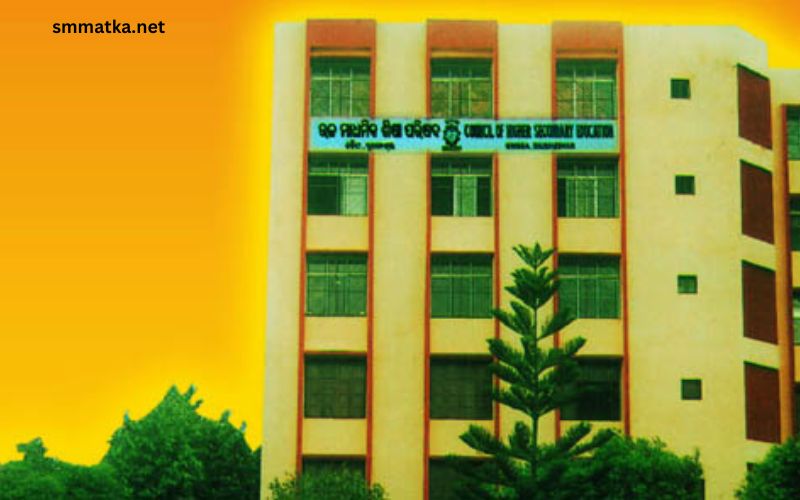The Council of Higher Secondary Education Odisha (CHSE) is the apex body responsible for the administration and regulation of higher secondary education in the state of Odisha, India. Established in 1982, the Council plays a pivotal role in shaping the educational landscape for students pursuing their post-secondary studies. As an autonomous organization under the Department of School and Mass Education, Government of Odisha, the Council is committed to ensuring quality and excellence in higher secondary education.
History and Background of the Council
The Council of Higher Secondary Education Odisha was established in 1982 through the Orissa Higher Secondary Education Act, 1982. Prior to its inception, the higher secondary education system in Odisha was governed by the Utkal University. The formation of the Council marked a significant milestone in the state’s educational history, as it provided a dedicated and specialized institution to oversee the development and implementation of higher secondary education policies.
Functions and Responsibilities of the Council
The Council of Higher Secondary Education Odisha is entrusted with a wide range of functions and responsibilities to ensure the smooth and effective delivery of higher secondary education in the state. Some of the key functions of the Council include:
- Formulating and implementing policies and regulations for higher secondary education
- Conducting the annual Higher Secondary Certificate (HSC) examination and other supplementary examinations
- Developing and updating the curriculum and syllabus for various streams and subjects
- Approving and recognizing higher secondary schools and colleges in the state
- Monitoring the academic and administrative functioning of affiliated institutions
- Ensuring the maintenance of educational standards and promoting quality assurance
- Facilitating teacher training and professional development programs
- Providing guidance and support services to students and educational institutions
Structure and Organization of the Council
The Council of Higher Secondary Education Odisha has a well-structured and hierarchical organization to carry out its functions effectively. The Council is headed by a Chairperson, who is typically a senior IAS officer appointed by the Government of Odisha. The Chairperson is assisted by a team of officials, including the Secretary, Joint/Deputy Secretaries, and other administrative staff.
The Council also has various committees and boards that oversee specific aspects of higher secondary education, such as the Curriculum Committee, Examination Committee, and Affiliation Committee. These committees are composed of subject experts, academicians, and representatives from the education department.
The Council has its headquarters in Bhubaneswar, the capital city of Odisha, and has regional offices in different parts of the state to ensure better coordination and implementation of its policies and programs.
Courses and Examinations Conducted by the Council
The Council of Higher Secondary Education Odisha is responsible for conducting the annual Higher Secondary Certificate (HSC) examination, which is the culmination of the two-year higher secondary education program. The HSC examination is offered in three major streams: Science, Commerce, and Arts.
In addition to the HSC examination, the Council also conducts various supplementary examinations throughout the year, such as the Improvement Examination and the Compartmental Examination, to provide opportunities for students to improve their performance or clear any pending subjects.
The Council also oversees the conduct of other examinations, such as the Diploma in Elementary Education (D.El.Ed.) and the Certificate in Physical Education (CPE), which are essential for aspiring teachers and physical education professionals, respectively.
Syllabus and Curriculum of the Council
The Council of Higher Secondary Education Odisha is responsible for developing and updating the syllabus and curriculum for the higher secondary education system in the state. The curriculum is designed to provide a comprehensive and holistic learning experience for students, covering a wide range of subjects and topics.
The syllabus for each stream (Science, Commerce, and Arts) is regularly reviewed and revised by subject-matter experts and academic committees to ensure that it remains relevant, up-to-date, and aligned with the changing educational landscape and industry demands.
The Council also emphasizes the integration of practical and hands-on learning, with a focus on developing critical thinking, problem-solving, and communication skills among students.
Evaluation and Grading System of the Council
The Council of Higher Secondary Education Odisha follows a comprehensive evaluation and grading system to assess the performance of students in the higher secondary examinations. The evaluation process involves a combination of internal assessments and the final board examination.
The internal assessment component includes assignments, projects, and periodic tests conducted by the affiliated schools and colleges. These assessments contribute a significant percentage to the overall performance of the students.
The final board examination, the Higher Secondary Certificate (HSC) examination, is the primary determinant of a student’s academic achievement. The Council employs a standardized grading system, where students are awarded grades based on their performance on a scale of A1 to E.
The Council also ensures the transparency and fairness of the evaluation process by adopting measures such as double evaluation, moderation of marks, and providing opportunities for re-evaluation and scrutiny of answer scripts.
Initiatives and Reforms by the Council for Higher Secondary Education in Odisha
The Council of Higher Secondary Education Odisha is committed to continuously improving the quality and accessibility of higher secondary education in the state. Over the years, the Council has undertaken various initiatives and reforms to enhance the educational experience for students and teachers.
Some of the key initiatives and reforms include:
- Introducing innovative teaching-learning methodologies, such as the integration of technology and digital resources in the classroom.
- Promoting vocational and skill-based education to better prepare students for the job market.
- Strengthening the infrastructure and facilities in affiliated schools and colleges to provide a conducive learning environment.
- Organizing teacher training programs and workshops to enhance the pedagogical skills and subject knowledge of educators.
- Implementing measures to ensure the holistic development of students, including the incorporation of co-curricular and extracurricular activities.
- Streamlining the examination and evaluation processes to ensure transparency, fairness, and timely declaration of results.
- Establishing partnerships with educational institutions, industry, and other stakeholders to foster collaborations and knowledge-sharing.
- Embracing sustainable and eco-friendly practices in the education system, such as the promotion of paperless initiatives and green campus initiatives.
Support Services Provided by the Council
The Council of Higher Secondary Education Odisha offers a range of support services to assist students, teachers, and educational institutions affiliated with the Council. These support services include:
- Career Counseling and Guidance: The Council provides career counseling and guidance services to help students make informed decisions about their educational and professional paths.
- Scholarship and Financial Assistance: The Council facilitates the disbursement of various scholarships and financial assistance schemes to support underprivileged and meritorious students.
- Teacher Training and Professional Development: The Council organizes regular training programs and workshops to enhance the professional skills and subject knowledge of teachers.
- Institutional Support and Capacity Building: The Council offers support and guidance to affiliated schools and colleges in areas such as infrastructure development, resource management, and quality assurance.
- Information and Communication Services: The Council maintains a comprehensive website and digital platforms to disseminate information, resources, and updates related to higher secondary education in Odisha.
- Grievance Redressal Mechanism: The Council has established a robust grievance redressal system to address the concerns and issues raised by students, parents, and educational institutions.
Challenges and Future Prospects for the Council
The Council of Higher Secondary Education Odisha, like any other educational institution, faces various challenges and constraints in its endeavor to provide quality higher secondary education. Some of the key challenges include:
- Ensuring Equitable Access: Addressing the disparities in access to higher secondary education, particularly in remote and underserved areas of the state, remains a significant challenge.
- Enhancing Infrastructure and Resources: Upgrading the infrastructure and resources in affiliated schools and colleges to meet the evolving educational needs and technological advancements.
- Fostering Teacher Empowerment: Continuous professional development and capacity building of teachers to keep pace with the changing pedagogical approaches and subject-matter expertise.
- Promoting Innovation and Experimentation: Encouraging and supporting innovative teaching-learning practices, research, and experimentation in the higher secondary education system.
- Adapting to Changing Trends: Aligning the curriculum, assessment, and examination systems with the dynamic needs of the 21st-century job market and industry.
- Strengthening Stakeholder Engagement: Enhancing collaboration and communication with various stakeholders, including students, parents, educational institutions, and the community.
Despite these challenges, the Council of Higher Secondary Education Odisha is committed to addressing these issues and embracing a future-oriented approach to higher secondary education. The Council’s vision is to transform Odisha’s higher secondary education system into a model of excellence, innovation, and inclusivity, empowering students to become responsible and successful citizens.
Conclusion
The Council of Higher Secondary Education Odisha plays a pivotal role in shaping the educational landscape of the state, ensuring the delivery of quality higher secondary education. Through its comprehensive functions, innovative initiatives, and dedicated support services, the Council strives to provide students with a well-rounded and enriching educational experience.
As the Council continues to navigate the evolving educational landscape, it remains steadfast in its commitment to upholding the principles of excellence, equity, and inclusivity. By addressing the challenges and embracing the future prospects, the Council is poised to contribute significantly to the overall development and transformation of Odisha’s higher secondary education system.
To learn more about the Council of Higher Secondary Education Odisha and its initiatives, visit their official website at [council website link]. There, you can find detailed information about the courses, examinations, syllabus, and support services offered by the Council. Additionally, you can stay updated on the latest news, announcements, and reforms by following the Council’s social media channels.

